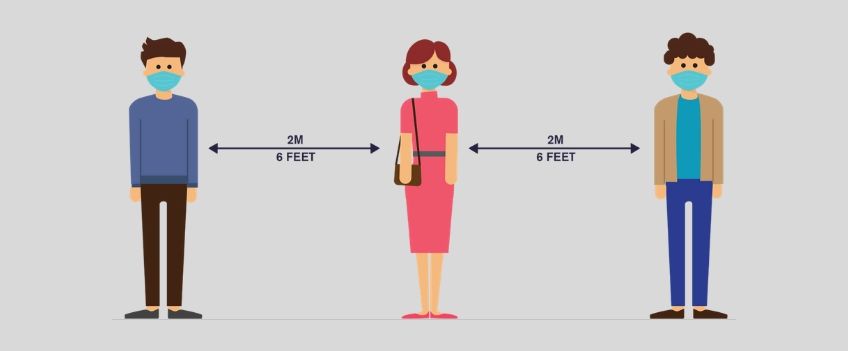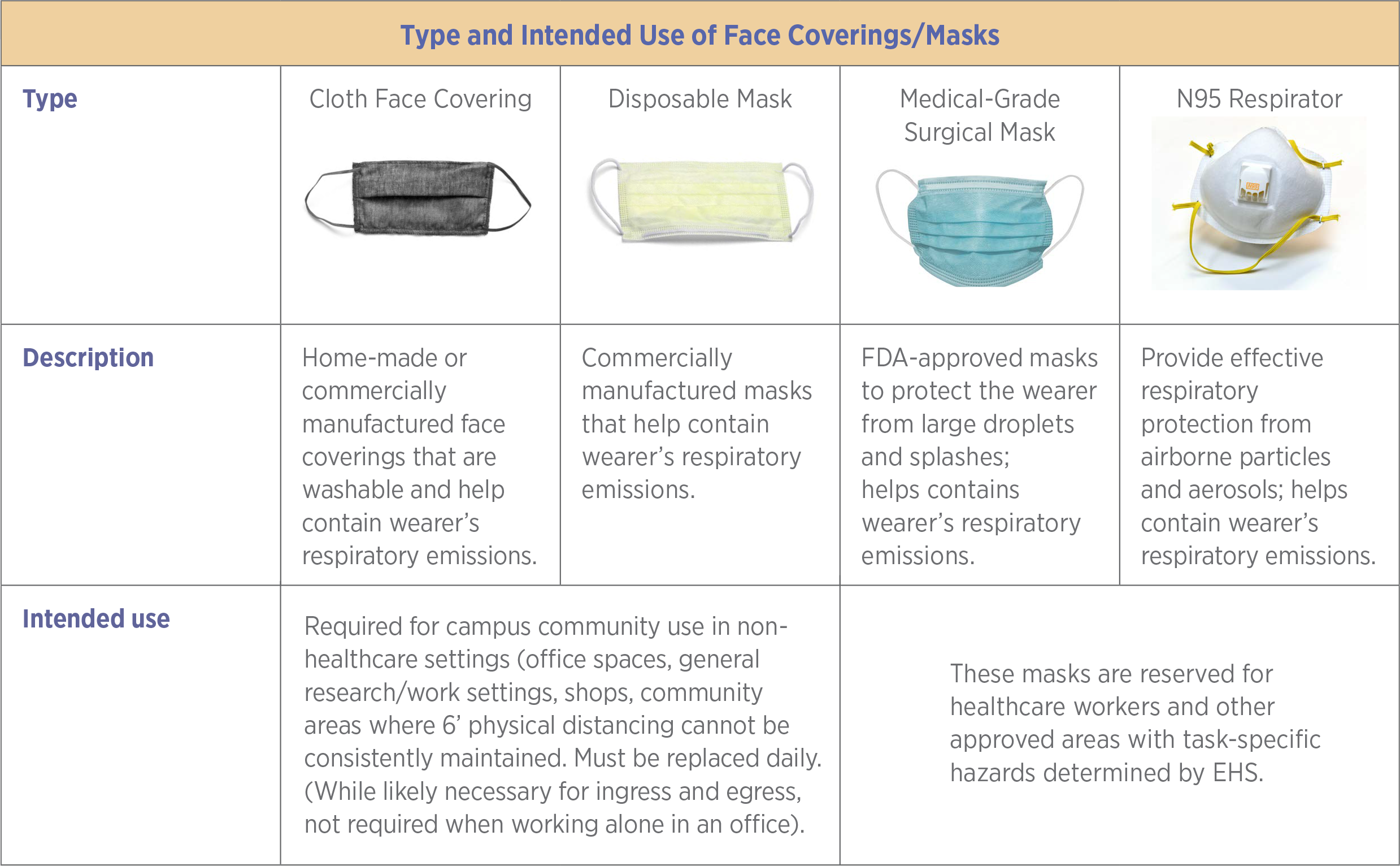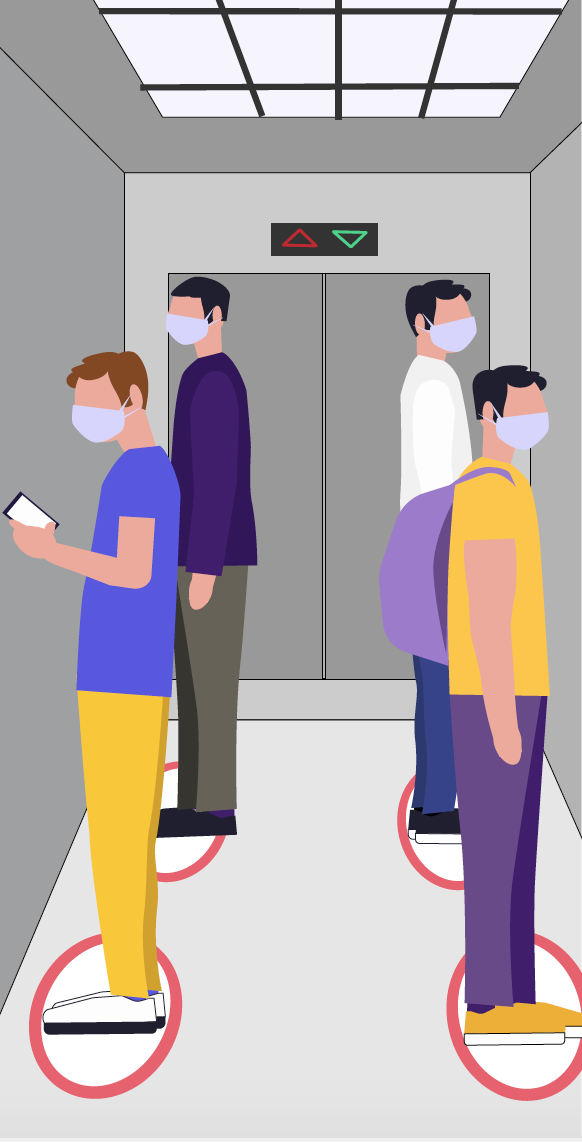
Safety Provisions & Protocols for NSU Facilities, Spaces & Grounds
Expectations for Using NSU Facilities
All students, faculty, and staff are required to comply with these guidelines, which apply to all NSU campuses and locations. The university expects that everyone will take responsibility for doing their part. It all starts with everyone’s commitment to self-monitoring for temperature and other symptoms before leaving home. Don’t come to campus if you are exhibiting symptoms, and follow the guidelines here.
In the event that students or employees violate these guidelines, they will be counseled by the Division of Student Affairs (DOSA), their college’s student affairs office, or their supervisor regarding the importance of compliance. Repeated violations may result in immediate revocation of building access privileges and possible disciplinary action under the NSU Code of Student Conduct and Academic Responsibility or Employee Handbook.
If you observe an individual not complying with NSU required protocols, it’s an opportunity to help protect the Shark family. Let the person know that you are following NSU safety protocols and you wish they would, too – for their own sake and for yours.
After all, you do have some control over the safety of yourself, your friends and your environment. If you and those around you do all we can to contain the spread of the coronavirus, we will enhance the safety of our own community. Public health officials confirm, when determining quarantine conditions, a person who has been wearing a face covering and practicing physical distancing regularly is less likely to be put into self-quarantine. Your whole semester is about choice, and your choices will help to determine how your semester will go.
If it is not feasible or comfortable for you to address the person yourself, please promptly advise Michelle Manley at (954) 262-7482 or email mmichell@nova.edu. Please report the setting, time, and date of the noncompliant behavior. We do not want students or employees to get into confrontational situations, but it is important that we share observations so that corrective outreach can be done. This is a community effort and each person’s choices do have an impact on everyone else.
General Safety Practices
- Wear a face covering, it’s required.
- Maintain physical distancing.
- Wash your hands often or use hand sanitizer.
- Avoid touching your eyes, nose, and mouth.
- Stay home if you are sick, have a fever, or flu-like symptoms.
- Get a flu shot.
- Clean and disinfect everyday items and surfaces.
Feeling sick? Fever? Symptoms? Contact the COVID-19 case manager at covidcase@nova.edu.
Use of Face Coverings
In the best interest of the health and safety of our community, and based on recommendations from the CDC and local ordinances, all NSU individuals— students, faculty, staff, visitors, and clinic patients—are required to wear a face covering while on campus or using any NSU facilities or grounds, in order to minimize the potential spread of COVID-19.
Because of shared community responsibilities and recommendations from current governmental agencies, we recommend you wear a face mask while off-campus, as well.
NSU will provide each student, faculty, and staff member with two, complimentary, washable cloth face coverings for routine, daily use. You are also welcome to wear your own face mask or face covering.
Appropriate use of face coverings is critical in minimizing the risks to others near you. You could inadvertently spread the coronavirus (which causes COVID-19) to others, even if you do not feel sick or have visible symptoms. 
Face coverings should not be worn by children under the age of two, or by anyone who has trouble breathing or is unable to remove the face covering without assistance. If you believe you cannot wear a face covering because of health or other concerns, or you need special hearing or speech accommodations, please contact the Office of Student Disability Services at (954) 262-7185.
When you are at home or in your residence hall unit, you and your roommates should decide what’s the best protocol for your group. Sometimes, if a family member or roommate has extra risk factors, people will decide to wear face coverings when they can, even at home. This should be part of your personal health safety plan based on your own living arrangements. But whenever in public areas of your residence hall, using any NSU facility or spaces at any of our locations, wear your face covering. And, remember, a face covering is not a substitute for physical distancing.
If you wish to purchase additional face coverings while on campus, you will be able to do so through the NSU Bookstore or other local retailers.
If You Choose to Use a Disposable Mask
Disposable masks may only be worn for one day and then must be placed in the trash. It is our expectation that, at this time, most students, faculty, and staff will wear their personal or NSU washable cloth face coverings.
Putting on the Face Covering/Disposable Mask
Wash hands or use hand sanitizer prior to handling the face covering/disposable mask. Ensure the face covering/ disposable mask fits over the nose and under the chin. Situate the face covering/disposable mask properly with nose wire (if applicable) snug against the nose. Tie straps behind the head and neck or loop around the ears and adjust (if applicable) to fit snugly.
Taking off the Face Covering/Disposable Mask
Wash hands or use hand sanitizer prior to handling the face covering/disposable mask. Do not touch your eyes, nose, or mouth when removing the face covering/ disposable mask. When taking off the face covering/ disposable mask, loop your finger into the strap and pull the strap away from the ear, or untie the straps. Wash hands immediately after removing face covering or disposable mask. Face coverings must be washed after one day’s use. Disposable masks must be properly discarded after one day’s use.
Care, Storage & Laundering
Keep face coverings/disposable masks stored in a paper bag when not in use. Cloth face coverings may not be used more than one day at a time and must be washed after use. Cloth face coverings should be properly laundered with regular clothing detergent before first use, and after each shift. Cloth face coverings should be replaced immediately if soiled, damaged (e.g. ripped, punctured), or visibly contaminated.
What About Gloves?
Only health care workers and others in high-risk areas need to use gloves. According to the CDC, gloves are not necessary for general use and do not replace good hand hygiene. Washing your hands often is considered the best practice for common everyday tasks. Additionally, improper gloves use can contribute to contamination spread and is discouraged.
Proper Handwashing Is Best
Rather than worrying about gloves, wash your hands often with soap and water for at least 20 seconds, especially after you have been in a public place like a restroom, classroom, or dining area, or after blowing your nose, coughing, sneezing, or touching your face. If soap and water are not readily available, use one of the hand sanitizer stations on campus. Avoid touching your eyes, nose, and mouth, and always wash your hands (again) after touching your face.
Special Cases for Personal Protection Equipment (PPE)
Medical, clinical, and health care students, faculty, practitioners, and other professionals whose higher-risk health care environment requires the use of PPE will be issued appropriate equipment by the clinic or college. Please keep in mind that not all clinical or health care environments, procedures, or treatments require full PPE use. Some only require more typical medical grade face masks and other simple precautions. Don’t be surprised if you observe different levels of PPE gear in different practice areas or clinical settings. Your dean, program head, or supervisor will communicate the procedures for acquiring appropriate PPE for your use, if and as needed.
Physical Distancing & Building Use
People can spread the virus before having symptoms; it is important to keep physical distance from others whenever possible, particularly for periods of time longer than 15 minutes.
The concept of physical distancing and density is essential to managing in-person classes and learning experiences this fall. These two principles, working together, are guiding how classes, meetings, and other group activities are going to be scheduled and managed. It’s another reason that having our in-person classes delivered both in-person and remotely at the same time is so important. If a classroom can only accommodate a limited number of students in person at one time, but a larger number of students need to take the class on that schedule, it’s possible that the professor may instruct one subset of students to attend remotely for a period of time while others attend in the classroom. The subsets would then be rotated so all students would share in-person and remote participation options.
In general, students, faculty, staff, and visitors must use the following safety practices on campus:
- Maintain six feet (about two arm’s length) of distance from other people.
- Abide by the guidelines the university has analyzed for classrooms and learning spaces to determine a healthy range of “density” or how many people can maintain physical distancing within that room.
- Follow posted signage reminders to practice physical distancing in shared areas.
- Wear your face covering even when you are physically distancing.
- Avoid gathering in groups in common areas in buildings or even outdoors. When you do want to interact with a group outdoors, please keep your face coverings on and maintain physical distancing.
- Continue to limit large group meetings or events by utilizing distance communication tools, like Zoom.
- Use of NSU facilities by student organizations for in-person group activities must be carefully managed to maintain appropriate densities and physical distancing. Student groups should submit requests for in-person group activities to Office of Campus Life and Student Engagement for the required approval. Anyone holding an approved group event is required to maintain all safety protocols.
- Use of NSU facilities by outside parties for in-person events is limited and requires approval from the provost or the university’s chief operating officer. Send your request to Facilities Management/Room Reservations. Any approved outside group event will be monitored and required to maintain all safety protocols.
Cleaning & Disinfecting Provisions
Best-practice measures are in place to clean, sanitize, and disinfect NSU facilities and spaces on a daily or more frequent basis. Special attention will be taken with high-contact areas such as door handles, buttons, chair armrests, tabletops, handrails, podiums, light switches, trash receptacles, elevator buttons, drinking fountains, and vending machines. High-use, public spaces will be cleaned and disinfected more frequently.
Additional hand sanitizers and hygiene stations have been installed, and signage is in place to reinforce required physical distancing and proper personal hygiene. In addition to relying on the scheduled cleaning/disinfecting schedule, some of you may personally wish to disinfect classroom surfaces you might touch, including classroom tabletops, chair armrests, and computer workstations. Therefore, NSU will also provide a supply of disinfecting wipes or cleaning materials in classrooms for personal use by faculty and students using those learning spaces.
 Elevators
Elevators
Consider stairs whenever possible. Occupancy on elevators should be limited. Please follow signage provided. Face coverings are required while on campus and when using elevators. Avoid touching elevator buttons with exposed hands or fingers when possible. Wash hands or use hand sanitizer upon departing the elevator.
Restrooms
Use of restrooms should be considered based on how large the restroom is and how many people are using it at the same time. Your goal is to ensure proper physical distancing. Please use your best judgment. If the restroom is too full for safe use, wait outside in the hallway and observe physical distancing. Be sure to avoid touching your eyes, mouth, or face while in the restroom and always wash your hands properly with soap and water before you exit, using a paper towel or other covering on faucets and doors as you depart.